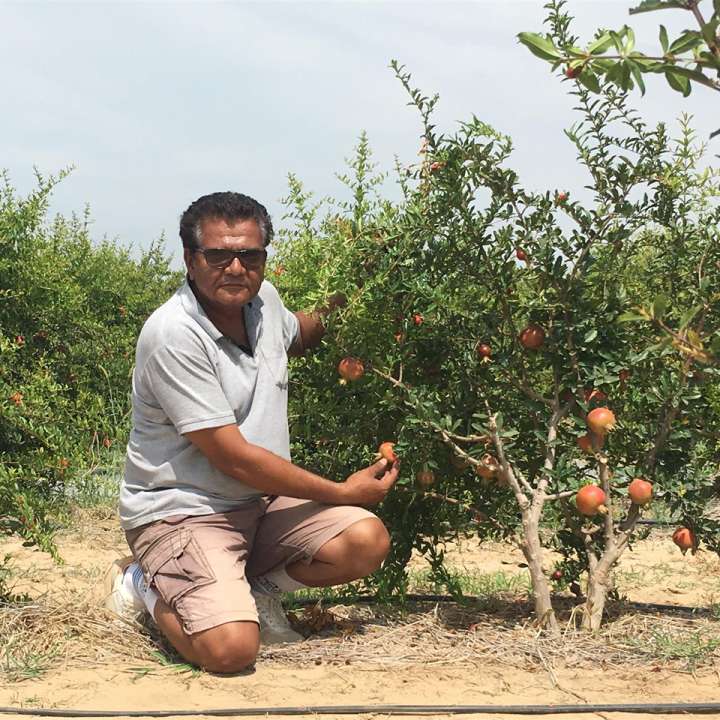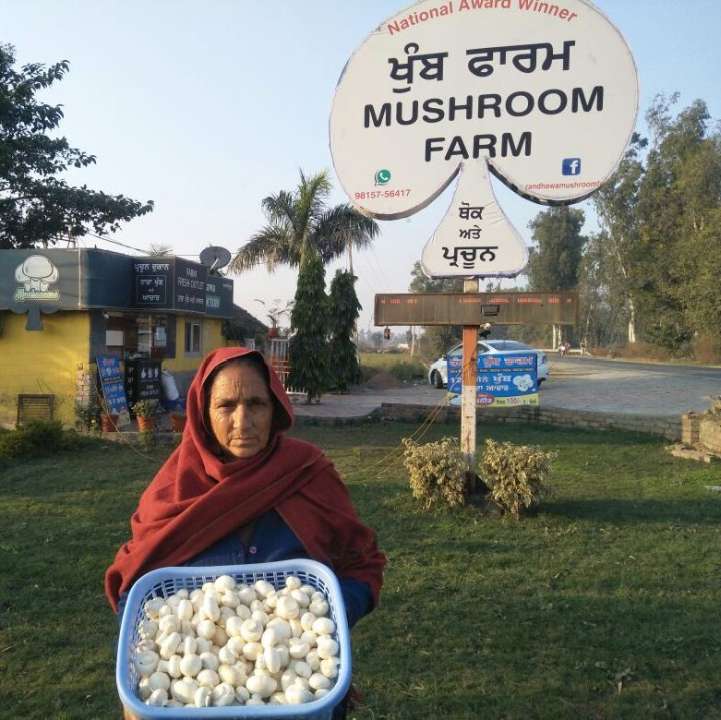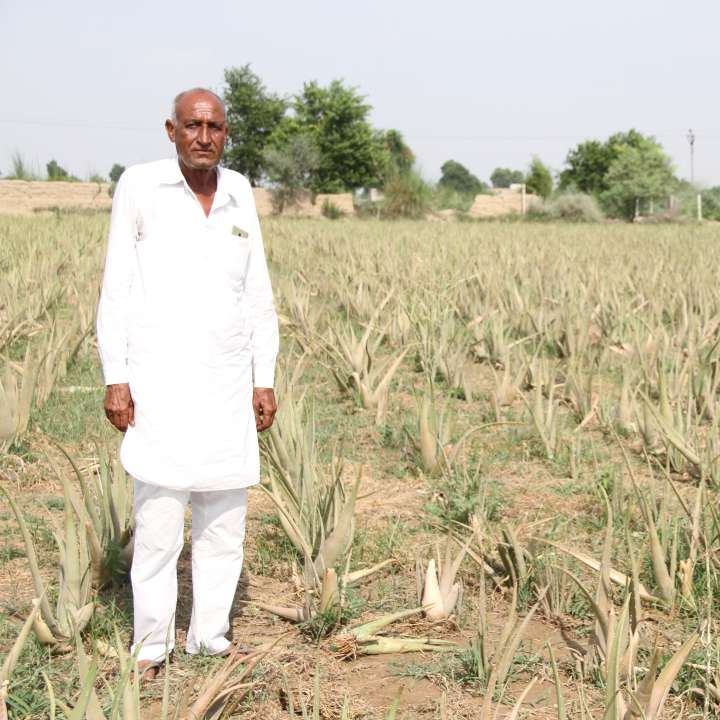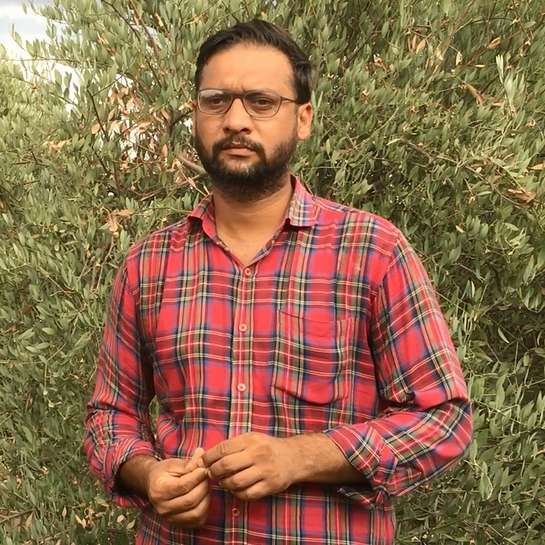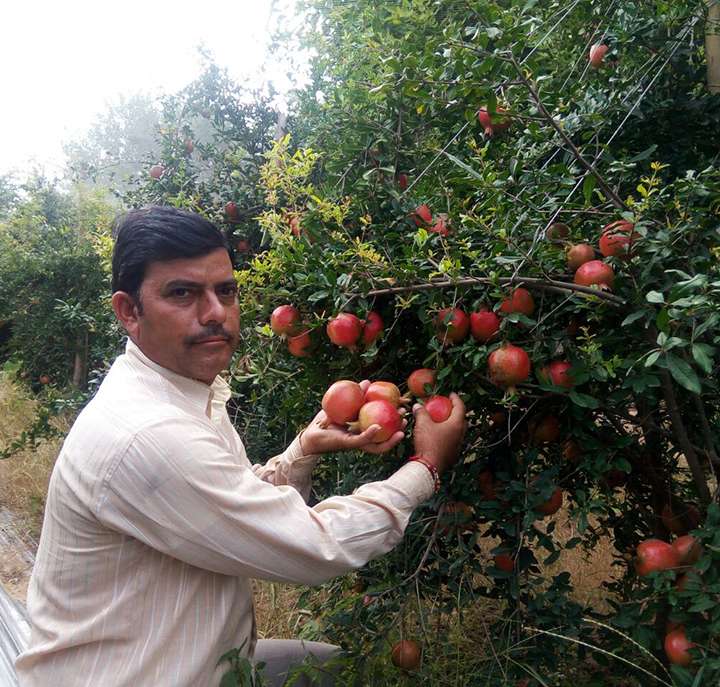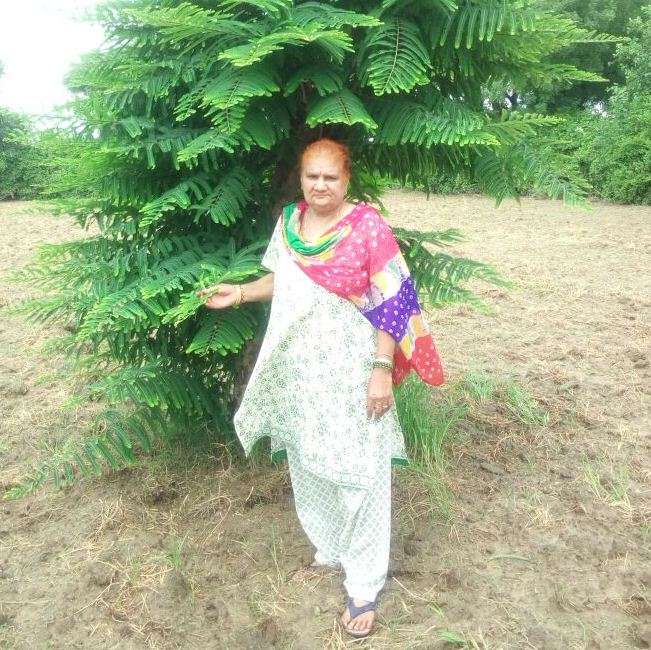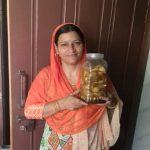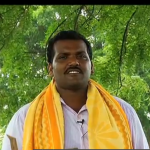HOW A MAN REALIZED HIS TRUE CALLING AND CHOSE HORTICULTURE AS HIS RETIREMENT PLAN
Growing pomegranate on the dry sandy land of Rajasthan, sound like a funny, fruitless, idea but with strong determination, perseverance, and high-density farming technology, Captain Lalit has made it possible.
After mastering many fields and pursuing many careers in his life, at last, Captain Lalit chose horticulture as his retirement plan and came back to his native place- 11 Eea in Ganganagar district of Rajasthan. Well, for many city-living-people, farming is not a good retirement plan, but Mr Lalit realized his true calling and thought of giving a chance to the very noble and basic profession of farming.
Mr Lalit was an active and enthusiastic man from the beginning, He started his professional career since he was studying in the college. After completing his graduation, he also obtained the license of a commercial pilot and pursued the profession of a pilot. Well, this is not all that he did. There was an era when computer education was just introduced in India everywhere, so by not missing the opportunity, he started a new venture and opened a computer education centre in Jaipur city. Soon after some time he also qualified the Oracle test and became an Oracle certified computer trainer. His computer education centre business went well for some years, but as the computer craze came down he had to wrap up his business because it wasn’t generating enough profit.
From his career choices, it was clear that from the beginning he was interested in choosing a unique profession which includes something new, whether it’s about the trend, technology or thing. And the next thing that he started was farming English vegetables and flowers for commercial purpose by taking a small piece of land on rent in Jaipur city, and many big five star hotels purchased his produce from him.
“When I was growing English vegetables like thyme, baby corn, broccoli, lettuce etc., at that time the localities use to make fun of me because for them these English vegetables were new. And they were amazed to see the smaller version of corn and greener version of cauliflower. But today they are eating those vegetables in pizza, burger, and salad.”
When he was farming English vegetables, during that time he realized that farming is the best investment and he should start it on a large scale. As he already had an ancestral property (12 bighas land) in his native place, so he decided to start Kinnow Farming on it. He came to his village with the idea of starting kinnow farming, but after discussing with many farmers he realized that everyone is doing the same and he should do something different.
And this was the time when his research on different fruit started and he visited many different farms in different cities. From his research, he made out a conclusion of growing an elite fruit and a common fruit. He consulted CISH (Central Institute of Subtropical Horticulture, Lucknow) and decided to start pomegranate and guava farming in 2015. He grew pomegranate (sindoori variety) on 6 Bigha and Guava on the other 6 Bigha. Made mobile and the internet his book and teacher for research and help.
“In the beginning, I also consulted Rajasthan Agriculture University but they said that pomegranate farming is not possible in Rajasthan and they made fun of me.”
Captain Lalit is much mechanized with his farming methods. For better yield and effective results, he has customized a tank-cum-machine with an attached mud pump, inside which he has installed a shaft to rotate and spread the slurry and jivamrit in the farm easily. To move the tank around the farm he uses a small tractor. When it comes to being economical then he prepares all the manure, fish amino acid fertilizer, bacteria and fungus for his whole farm himself, by buying just a bottle of NPK Bio-fertilizer from the market. He multiplies the bio-cultures by preparing the spray.
He has also adopted two cows of Rathi breed, which were roaming free on the road and now he is utilizing those cows for making jivamrit and manure. One of the important thing that he uses in the manure is “Agnihotr bhabhooti”- ashes obtained by offering prayers to God in front of the fire.
“The reason I am using Agnihotr Bhabhooti is that it helps in purifying the environment and it is a way of Adhyatmik Kheti. Adhyatmik means spiritual, a way of farming which is related to God.”
He has also built up a water reservoir in 50 m x 50 m area to save rain water and irrigate his farm with it. Earlier his farm was totally Eco-friendly because he was using solar electricity to manage everything. But now he is getting electricity from the government.
His whole project of Pomegranate and Guava farming has been approved by the National Horticulture Board, and he gets the subsidy from them.
Today he has 5000 plants in 12 Bigha of area and the age of the plants is 2 year and 4 months. By following high-density farming, pomegranate trees has already started bearing the fruit, but he is expecting the real commercial yield next year.
“During my research, I also visited some south Indian States and High Density Farming is already being done there. Farmers in North India should also follow this technique because it is very beneficial, in all the aspects.”
Before starting all this, he had the theoretical knowledge about high-density farming but he lacked the practical experience, but slowly with the time, he is gaining that too. He has 2 workers and with the help of them, he manages his farm.
When a farmer starts farming he should start investing like an industry, then only he can gain profit. Moreover, today every farmer needs to be mechanized if they want to be efficient in farming.
Until farmers don’t stop practicing conventional farming they cannot become empowered and independent. Especially those farmers who have less land, have to take initiative themselves and they should invest in horticulture. They should just follow the right direction.
”


